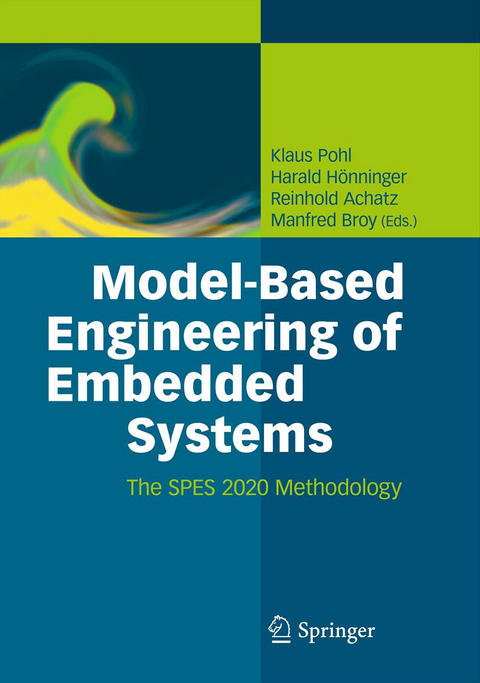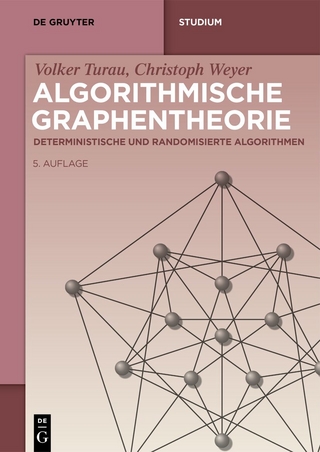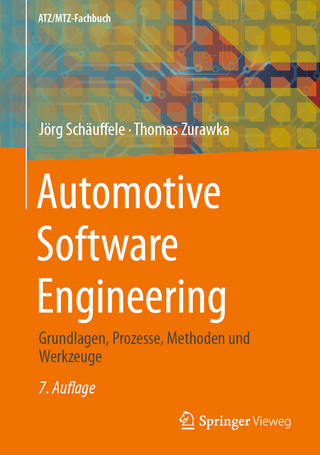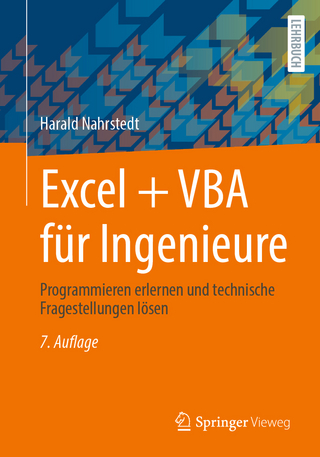
Model-Based Engineering of Embedded Systems
Springer Berlin (Verlag)
978-3-642-43992-6 (ISBN)
Embedded systems have long become essential in application areas in which human control is impossible or infeasible. The development of modern embedded systems is becoming increasingly difficult and challenging because of their overall system complexity, their tighter and cross-functional integration, the increasing requirements concerning safety and real-time behavior, and the need to reduce development and operation costs.
This book provides a comprehensive overview of the Software Platform Embedded Systems (SPES) modeling framework and demonstrates its applicability in embedded system development in various industry domains such as automation, automotive, avionics, energy, and healthcare. In SPES 2020, twenty-one partners from academia and industry have joined forces in order to develop and evaluate in different industrial domains a modeling framework that reflects the current state of the art in embedded systems engineering.
The content of this book is structured in four parts. Part I "Starting Point" discusses the status quo of embedded systems development and model-based engineering, and summarizes the key requirements faced when developing embedded systems in different application domains. Part II "The SPES Modeling Framework" describes the SPES modeling framework. Part III "Application and Evaluation of the SPES Modeling Framework" reports on the validation steps taken to ensure that the framework met the requirements discussed in Part I. Finally, Part IV "Impact of the SPES Modeling Framework" summarizes the results achieved and provides an outlook on future work.
The book is mainly aimed at professionals and practitioners who deal with the development of embedded systems on a daily basis. Researchers in academia and industry may use it as a compendium for the requirements and state-of-the-art solution concepts for embedded systems development.
Dr. Klaus Pohl is full professor for software systems engineering and director of the Institute for Computer Science and Business Information Systems at the University of Essen, Germany. He holds a degree in computer science (FH Karlsruhe, Germany) and a degree in information systems (Univ. Konstanz, Germany). Klaus Pohl received his PhD and his habilitation in Computer Science from the Technical University of Aachen, Germany. His current research interest include software product lines, requirements management and scenario-based test case derivation. Current research projects include the European ITEA initiative in software product lines (the CAFÉ project) and various industrial uptake projects with leading Germany companies. Klaus Pohl is (co-)author of over 90 referred publications in the area of requirements and software engineering. He as published a book on Process-Centred Requirments Engineering (RSP/Wiley) and is (co-editor) of more than 15 conference and workshop proceedings. Moreover, he is/was co-editor of several special issues of well-established journals, including 'Introduction of Software Product Lines', IEEE Software, 2002. He is a member of the IFIP working-group 2.9 on software requirements engineering, member of the steering committee of the IEEE Intl. Requirements Engineering Conference (RE), member of the editorial board of the Requirements Engineering Journal and founder and member of the advisory board of the Requirements Engineering: Foundation for Software Quality (REFSQ) workshop series. He is/was program chair of various conferences and workshops including the IEEE Joint Intl. Requirements Engineering Conference (RE 02).
Dr. rer. nat. Manfred Broy studierte Mathematik und Informatik 1971-76 an der Technischen Universität München. Dort 1976-80 wissenschaftlicher Mitarbeiter im Sonderforschungsbereich 49 'Programmiertechnik' der DFG. 1980 Promotion, ab 1980 wisschenschaftlicher Assistent und 1982 Habilitation in Informatik an der TU München. 1983 ordentlicher Professor für Informatik und Gründungsdekan an der Fakultät für Mathematik und Informatik der Universität Passau. Seit 1989 ordentlicher Professor für Informatik an der TU München. 1994 Leibniz-Preis der DFG.
Part I Starting Situation.- Challenges in Engineering for Software-Intensive Embedded Systems.- Requirements from the Application Domains.- Part II The SPES Modeling Framework.- Introduction to the SPES Modeling Framework.- Requirements Viewpoint.- Functional Viewpoint.- Logical Viewpoint.- Technical Viewpoint.- Modeling Quality Aspects: Safety.- Modeling Quality Aspects: Real-Time.- Part III Application and Evaluation of the SPES Modeling Framework.- Overview of the SPES Evaluation Strategy.- Application and Evaluation in the Automation Domain.- Application and Evaluation in the Automotive Domain.- Application and Evaluation in the Avionics Domain.- Application and Evaluation in the Energy Domain.- Application and Evaluation in the Healthcare Domain.- Evaluation Summary.- Part IV Impact of the SPES Modeling Framework.- Lessons Learned.- Outlook.
| Erscheint lt. Verlag | 14.12.2014 |
|---|---|
| Zusatzinfo | XII, 304 p. |
| Verlagsort | Berlin |
| Sprache | englisch |
| Maße | 168 x 240 mm |
| Gewicht | 555 g |
| Themenwelt | Mathematik / Informatik ► Informatik ► Software Entwicklung |
| Schlagworte | automotive software • Avionics Software • Embedded Systems • Healthcare Software • model-driven development • Requirements Engineering • Software engineering • Software Engineering / Softwareentwicklung • Softwareentwicklung • software-intensive systems |
| ISBN-10 | 3-642-43992-6 / 3642439926 |
| ISBN-13 | 978-3-642-43992-6 / 9783642439926 |
| Zustand | Neuware |
| Informationen gemäß Produktsicherheitsverordnung (GPSR) | |
| Haben Sie eine Frage zum Produkt? |
aus dem Bereich


